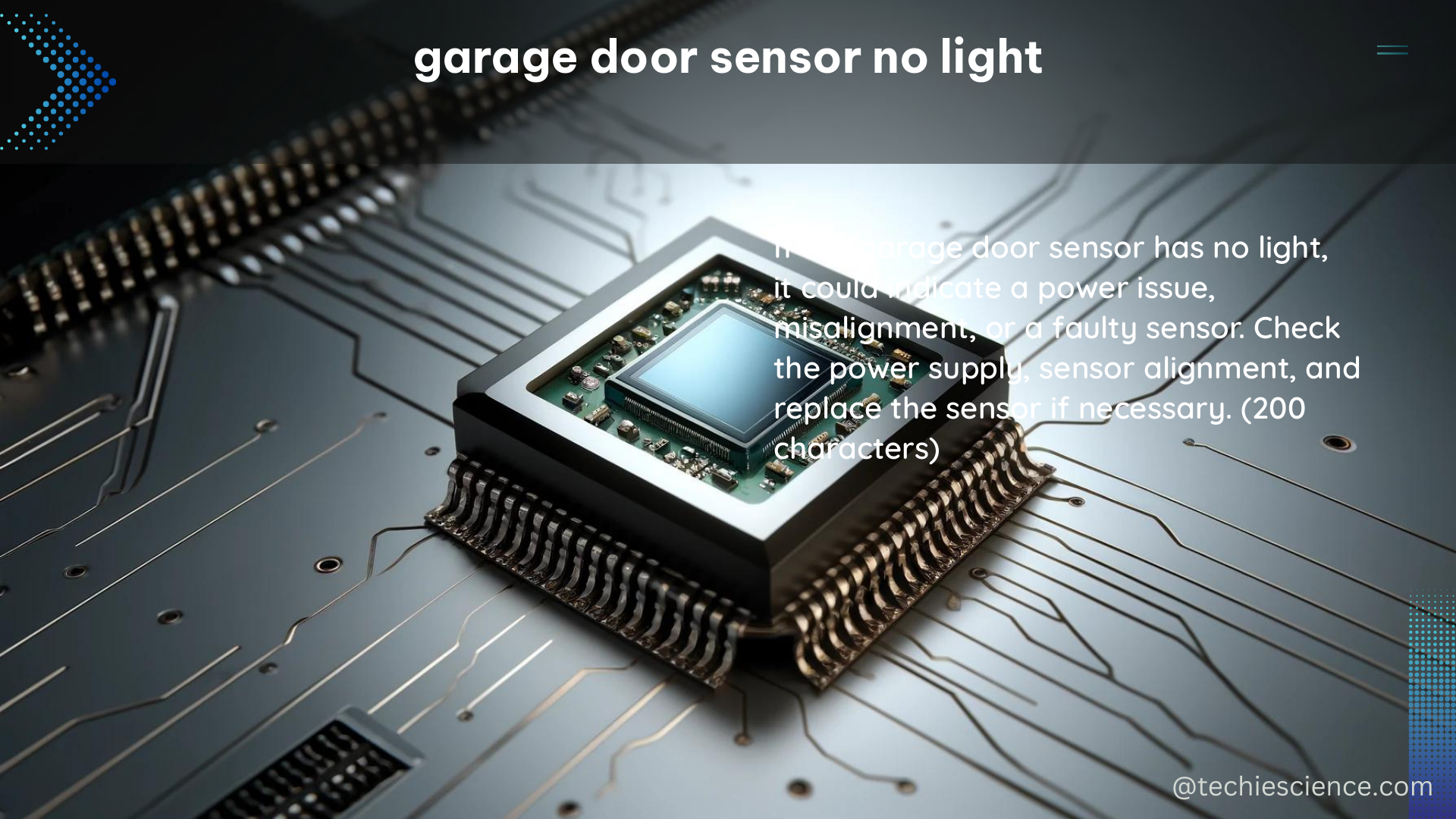Garage door sensor issues are a common problem faced by homeowners, and they can be a real headache to deal with. These sensors are crucial for the safe operation of garage doors, as they prevent the door from closing if an object or person is in the way. When the sensors are not working correctly, it can lead to a variety of problems, including the door not closing or the opener not responding.
Understanding Garage Door Sensor Basics
Garage door sensors typically operate on 12-24 volts of direct current (DC) or alternating current (AC) power. They use infrared (IR) technology to detect objects in the door’s path, with a detection range of approximately 6-15 feet, depending on the model. The sensors have an LED indicator that shows the status of the sensor, such as flashing blue for unpaired or solid green for paired and operational.
One of the most common issues with garage door sensors is misalignment. Garage door sensors have a maximum allowable angle of misalignment of approximately 1/4 inch to 1/2 inch, depending on the model. If the sensors are not properly aligned, they may not be able to detect objects in the door’s path, leading to safety issues.
Troubleshooting Garage Door Sensor No Light

If your garage door sensors are not lit, it could be due to a variety of reasons. Here are some steps you can take to troubleshoot the issue:
1. Check the Sensor Alignment
The first step in troubleshooting a garage door sensor no light issue is to check the alignment of the sensors. Ensure that the sensors are properly aligned and that nothing is obstructing their path. Use a level or a ruler to check the alignment, and make any necessary adjustments to ensure that the sensors are within the maximum allowable angle of misalignment.
2. Inspect the Wiring
Next, inspect the wiring for any loose connections or damage. Tighten any loose connections and replace any damaged wiring. Check the wiring from the sensors to the garage door opener, and ensure that there are no breaks or cuts in the wires.
3. Replace the Batteries
If the sensors have batteries, replace them with fresh batteries to ensure that they have sufficient power. Low battery power can cause the sensors to stop working or the LED indicator to not light up.
4. Check the Voltage Output
Use a multimeter to check the voltage output at the garage door opener. If the sensors are not receiving power, it could indicate a problem with the opener or the wiring. Check the voltage output and ensure that it is within the recommended range for the sensors.
5. Clean the Sensors
Dirt and debris can also cause issues with garage door sensors. Use a soft cloth to clean the sensors and remove any dirt or debris that may be obstructing their path.
Advanced Troubleshooting Techniques
If the above steps do not resolve the issue, there are some more advanced troubleshooting techniques you can try:
1. Test the Sensors Individually
If you have two sensors, try testing them individually to determine if one of them is faulty. Disconnect one sensor and test the other, then switch and test the other sensor.
2. Check for Interference
Electromagnetic interference (EMI) or radio frequency interference (RFI) can also cause issues with garage door sensors. Try moving the sensors to a different location or shielding them from potential sources of interference.
3. Replace the Sensors
If all else fails, you may need to replace the sensors. Garage door sensors can wear out over time or become damaged, and replacing them may be the only solution.
Conclusion
Garage door sensor issues can be a real pain, but with the right troubleshooting techniques, you can often resolve the problem yourself. By following the steps outlined in this guide, you can identify and fix the issue, ensuring the safe and efficient operation of your garage door.
References:
- New Garage Door Opener Won’t Work Because of Sensors or Something Else?
- Garage Door Sensor Not Sensing
- Garage Door Sensors Neither Lit
- Garage Door Opener Sensors
- Garage Door Sensor Troubleshooting

The lambdageeks.com Core SME Team is a group of experienced subject matter experts from diverse scientific and technical fields including Physics, Chemistry, Technology,Electronics & Electrical Engineering, Automotive, Mechanical Engineering. Our team collaborates to create high-quality, well-researched articles on a wide range of science and technology topics for the lambdageeks.com website.
All Our Senior SME are having more than 7 Years of experience in the respective fields . They are either Working Industry Professionals or assocaited With different Universities. Refer Our Authors Page to get to know About our Core SMEs.